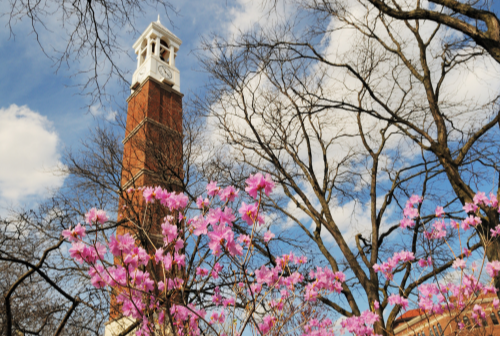For years, the term “Ivy League” has been synonymous with academic prestige, elite outcomes, and unparalleled tradition. But as the higher education landscape evolves, so too does the definition of excellence. Enter the “New Ivies” — a growing list of colleges and universities across the U.S. that are gaining national recognition for offering rigorous academics, top-tier research opportunities, strong job placement, and vibrant campus cultures.
What Makes a “New Ivy”? Key Factors That Define Top Emerging Colleges
Forbes recently published its list of “New Ivies,” highlighting colleges and universities that are becoming strong alternatives to the traditional Ivy League. To create the list, Forbes used three main criteria:

Size
Private colleges must enroll at least 3,500 students; public colleges must enroll at least 4,000.
Selectivity
Private colleges must admit fewer than 20% of applicants; public colleges must admit fewer than 50%.
Test Scores
The median SAT score is 1530 and ACT score is 34 for private colleges; 1410 SAT and 32 ACT for public colleges.
Forbes then asked top employers which schools they believe are producing exceptional graduates. One important note: the University of California system, including UCLA and UC Berkeley, was not included in the rankings because it no longer reports test score data.
The New Ivies 2025 List
The following public and private institutions have earned a spot on Forbes’ list of New Ivies:
The Public New Ivies | The Private New Ivies |
| Georgia Institute of Technology-Main Campus | Carnegie Mellon University |
| Purdue University-Main Campus | Emory University |
| The University of Texas at Austin | Georgetown University |
| United States Military Academy | Johns Hopkins University |
| University of Illinois Urbana-Champaign | Northwestern University |
| University of Michigan-Ann Arbor | Rice University |
| University of North Carolina at Chapel Hill | Tufts University |
| University of Pittsburgh-Pittsburgh Campus | University of Notre Dame |
| University of Virginia-Main Campus | Vanderbilt University |
| University of Virginia-Main Campus | Washington University in St Louis |
Why the New Ivies Are Gaining Ground
The New Ivies offer a blend of academic excellence, affordability, and real-world preparation that resonates with today’s college applicants.

While they may not carry the same historic name recognition as the Ivy League, they’re redefining what a top-tier college experience looks like. Here's a closer look at what truly sets the New Ivies apart.
1. Affordability and Value
As tuition prices soar past $90,000 annually at some Ivy League institutions, many students and families are turning to more cost-effective options without compromising educational quality. The New Ivies offer a strong academic experience with a lower price tag and often more generous financial aid packages. For students seeking high-caliber academics without incurring overwhelming debt, these schools strike a balance between excellence and financial responsibility.
2. Greater Accessibility
While the New Ivies remain highly selective, they are more accessible than their Ivy League counterparts, which often admit fewer than 10% of applicants. Most New Ivies admit under 50%, creating more opportunity for strong students to gain admission. These schools take a holistic approach to applications, valuing academic performance, leadership, and character—offering students a chance to shine beyond test scores alone.
3. Strong Employer Confidence
Recent data shows that employers are increasingly confident in graduates from top public and private universities beyond the Ivy League. In a Forbes survey, over one-third of hiring managers said state universities were doing a better job preparing students than the traditional Ivies, and nearly as many saw improvements among private non-Ivies. Factors like job-readiness, critical thinking, and real-world skills are becoming just as important—if not more so—than brand-name degrees.
4. Purposeful and Personalized Admissions
New Ivies often prioritize a more personalized admissions process, evaluating students based on fit, initiative, and potential impact. Each institution has its own set of values—for instance, Johns Hopkins emphasizes academic character and innovation, while Georgia Tech looks for community engagement and entrepreneurial drive. A successful application requires intentional effort and school-specific insight, rewarding students who take the time to demonstrate genuine interest and alignment.
In today’s competitive admissions landscape, prestige alone doesn’t guarantee the best college experience or future success. The New Ivies are proving that excellence comes in many forms—offering rigorous academics, strong support systems, and clear pathways to career and graduate opportunities. For students ready to approach the process with clarity and intention, these schools deserve a closer look.


